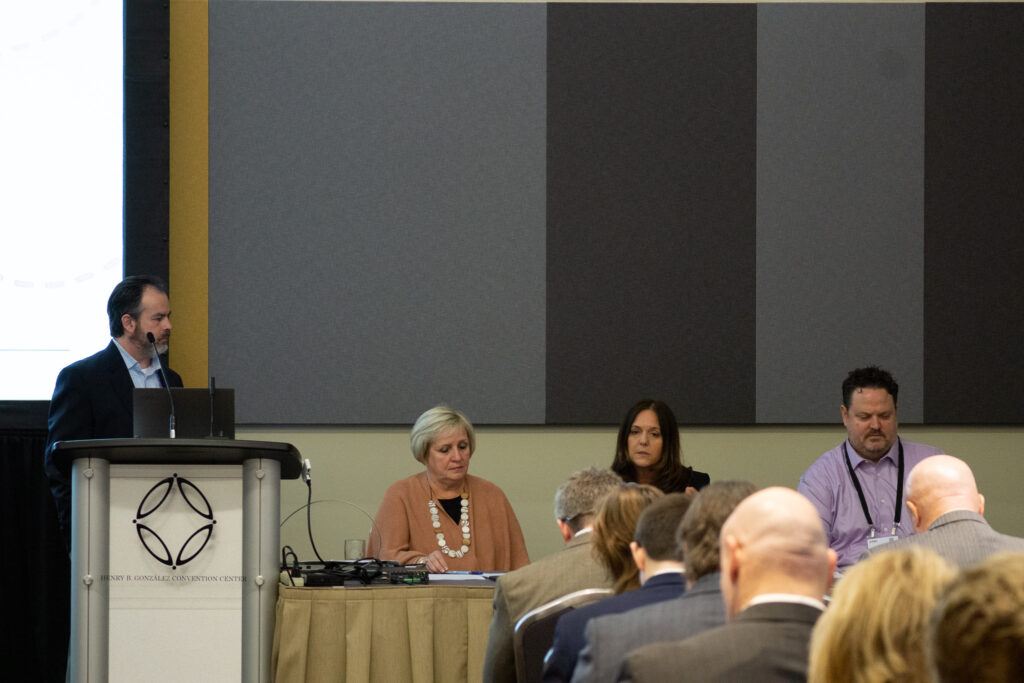Continuing off last year’s “Minds of the Future” session at the 2022 AASA national conference, three superintendents spoke Thursday at the 2023 event in San Antonio, Texas, about preparing school districts for the future of work in a world of advancing technology.
Returning panelists Shari Camhi and Kamela Patton, who were accompanied by Aaron Spence, discussed the effects of changing technology and artificial intelligence on teachers and leadership development. Incoming AASA executive director David Schuler introduced the panelists and their host, Brian Contreras of myOptions Encourage.
According to the McKinsey Global Institute, artificial intelligence will change the layout of the workforce. Spence, superintendent of Virginia Beach City Public Schools in Virginia, discussed ChatGPT — software with the ability to produce human-like responses to written input — and its ability to alter classroom dynamics.
“It will fundamentally change the nature of what a teacher’s responsibility is,” Spence said. “If you want to get kids ready for what’s out there, you are no longer a content expert.”
Spence’s solution is to help teachers transition from teaching content to teaching skills, such as resiliency, social skills, collaboration and responsive thinking.
Shari Camhi, superintendent of Baldwin School District and AASA president, suggested AI will become dangerous if students fail to understand important media literacy skills. Teachers need to change their mindsets and become open to different facets of learning.
Teachers, Camhi said, should have the opportunity to step out of the classroom and into the workforce. Baldwin UFSD sent 14 teachers to work as interns in various industries to better understand the current condition of the workplace in hopes that they would take this knowledge and engaging teaching methods back to the classroom.
“Many times we’re asking our teachers to do something that they do not know how to do,” Camhi said. “There’s no frame of reference for what different is — you’re asking them to do the impossible.”
Patton, superintendent of Collier County Public Schools and 2022 Florida Superintendent of the Year, summarized the next step for teachers in three words — fluidity, adaptability and pivoting. Her district introduced engineering and entrepreneurship classes down to the elementary level to promote a growth mindset in contrast to “fixed” learning environments.
“The universities recognize (that) their degree isn't the same as it was,” Patton said. “A technical certification can get a job faster.”
The panelists also brought families into the conversation. Patton explained that giving guidance to principals and using them as messengers brings change into the district and community.
“If you have a pretty traditional environment, they are as resistant to change as everybody else,” Camhi said. “You have to bring your communities into the conversation.”
(Emma Siebold is a reporting intern for AASA’s Conference Daily Online and a senior and editor-in-chief of the Smithson Valley High School newspaper in Spring Branch, Texas.)

